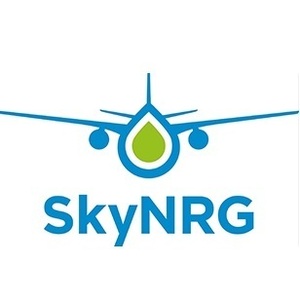SkyRNG, LanzaTech to build alcohol-to-jet facility in Europe

January 7, 2021
BY Erin Krueger
Netherlands-based SkyNRG has announced it is leading a consortium that will build a 30,000-ton-per-year alcohol to jet (ATJ) facility in Europe. LanzaTech will supply its ATJ technology to the facility and be responsible for plant design, construction and operations. SkyNRG will act as project coordinator and manage downstream supply chain development.
The project is being developed by the FLITE (fuel via low carbon integrated technology from ethanol) consortium, which kicked off in December 2020 and has been awarded a €20 million grant from the European Commission’s Horizon 2020 program.
Advertisement
A specific location for the plant has not been released. Consortium partners, however, have indicated that the FLITE ATJ facility is scheduled to be fully operational in 2024.
The facility will take in waste-based ethanol sourced from multiple European producers. The sustainable aviation fuel (SAF) produced at the plant will be certified through the Roundtable on Sustainable Biomaterials.
“With the increasing demand for SAF in the future, there is a need to diversify SAF technologies and feedstock,” said Maarten van Dijk, managing director SkyNRG. “This first of its kind Alcohol-to Jet production in Europe will be an important step in the direction of making sustainable aviation fuel more accessible and scalable, supporting net zero emission ambitions for the aviation industry. SkyNRG is excited to be a part of the FLITE project.”
Advertisement
“Bending the carbon curve requires collaboration and strong partnerships, something the FLITE Consortium exemplifies,” said Jennifer Holmgren, LanzaTech. “We look forward to implementing LanzaJet Alcohol-to-Jet technology in Europe. This is an important enabler to expanding production of sustainable aviation fuel and creating a path to a lower carbon future. We are grateful for the Horizon 2020 funding which has made this project possible.”
Related Stories
The U.S. Energy Information Administration maintained its forecast for 2025 and 2026 biodiesel, renewable diesel and sustainable aviation fuel (SAF) production in its latest Short-Term Energy Outlook, released July 8.
XCF Global Inc. on July 10 shared its strategic plan to invest close to $1 billion in developing a network of SAF production facilities, expanding its U.S. footprint, and advancing its international growth strategy.
U.S. fuel ethanol capacity fell slightly in April, while biodiesel and renewable diesel capacity held steady, according to data released by the U.S. EIA on June 30. Feedstock consumption was down when compared to the previous month.
XCF Global Inc. on July 8 provided a production update on its flagship New Rise Reno facility, underscoring that the plant has successfully produced SAF, renewable diesel, and renewable naphtha during its initial ramp-up.
The USDA’s Risk Management Agency is implementing multiple changes to the Camelina pilot insurance program for the 2026 and succeeding crop years. The changes will expand coverage options and provide greater flexibility for producers.
Upcoming Events










